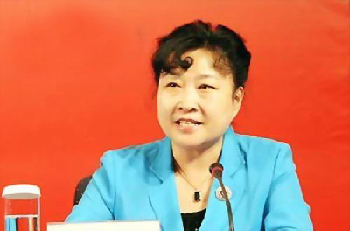|
Chinese government is paying more and more attention to culture’s role in communicating with the rest of the world. Speaking at a recent press conference about the achievements of China’s cultural diplomacy, Zhao Shaohua,the Vice-Minister of Culture for the PRC emphasized the effectiveness of ‘people power’ in external cultural communication today.

She says the heart-to-heart sharing of culture can promote an exchange of ideas, values and emotions in an unobtrusive and peaceful way, whilst remaining straightforward and effective. Therefore, culture is playing an increasingly important role in today’s diplomatic public relations and communication, i.e. ‘Cultural Diplomacy’. From this perspective, the Chinese culture is no longer only important to our civilization, but assumes a greater responsibility of displaying our nation to the whole world.
She believes that the nation will find our own unique path in our application of cultural diplomacy if people use the advantages of the Chinese traditions handed down to us.As water can gradually wear down stone, Chinese can win over the rest of the world by our virtue.
When talking about the ‘Outward-bound policy’ for the promotion of Chinese culture, Zhao said the Ministry of Culture adheres strictly to the central government’s strategy. She says their focus ranges from the grand scale-creating an overall environment in which China can be easily promoted- to the miniscule–individuals on every level taking the opportunity to share our culture. At last, they have formed a general framework with the central government leading; the local governments assisting, and citizens participating in cultural diplomacy.
From the administrative level, the Minister of Culture has delegated its authority to examine and approve to lower levels several times, to ensure the local governments and civil society can remain active in external cultural communication. It has drawn up a series of policies and regulations to help both the local government and enterprises participate so that the local culture is able to be carried forward in an act of unity. The ministry often holds grand galas in foreign countries to celebrate special festivals and expand China’s influence on the international cultural stage. Looking at the rate of our present cultural communication with the outside world, it’s clear the Ministry has put forward timely efficient policies and strategies to strengthen the position of Chinese culture overseas.
Zhao emphasized the important role of people power in external cultural exchange, commenting especially the effort made by enterprises working with cultural products. In recent years, China’s income from the export of audio-visual products has reached 200 million yuan a year. The countries we export to include, amongst others, the USA, Canada, Japan, South Korea, and South Asian countries.
She says in the future, the Minister of Culture will put forward more relevant policies and regulations to further encourage Chinese citizens to participate in external cultural exchange. There are also plans to help non-state-owned enterprises to take part in international cultural communication, using their united strength to push Chinese culture to the forefront of the international stage fast and sound.
Editor: Yan Fei
|
